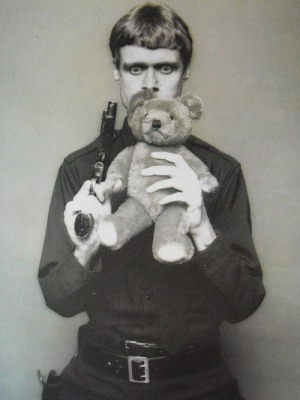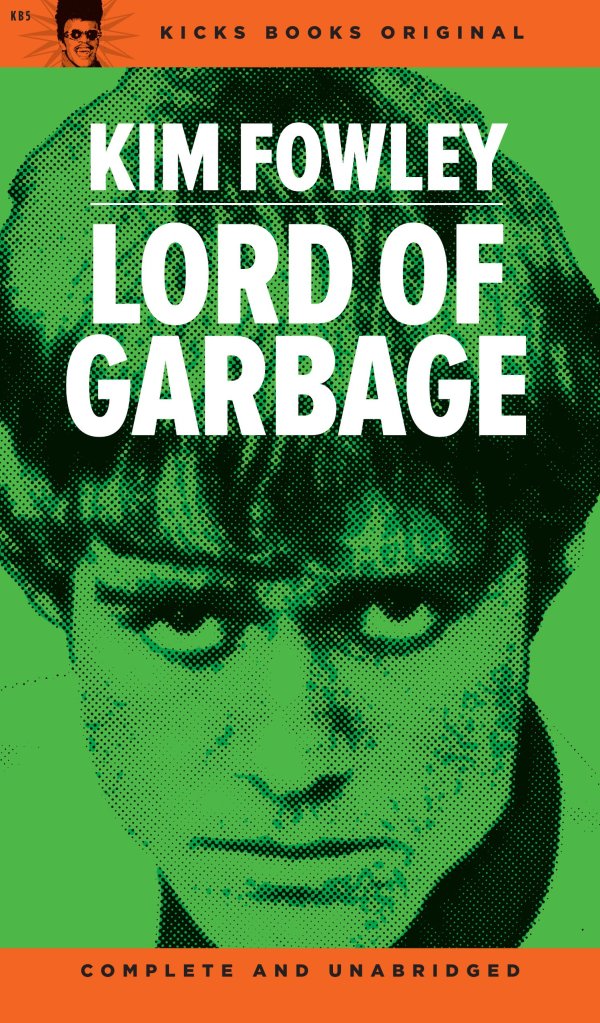LOS ANGELES TIMES: Kim Fowley came out of a Hollywood that doesn’t exist anymore, the Hollywood of Kenneth Anger and Ed Wood. Best known for cooking up the Runaways, he began to work in the music business in the late 1950s and since then has turned up in more places than Woody Allen’s Zelig, producing for Gene Vincent, writing with Warren Zevon and introducing John Lennon and the Plastic Ono Band when they performed in Toronto in 1969. MORE
WASHINGTON POST: The broad strokes of the relationship between producer-manager Kim Fowley and former Runaways frontwoman Cherie Currie are the sort that are just ripe for VH1 “Behind the Music” treatment. Fowley created the band that launched Currie’s music career, but their relationship soured and turned downright venomous over the usual music industry wedges: royalties, drugs, and Fowley’s odd, unorthodox treatment — some would say exploitation — of a band of five teenage girls.
Currie once called Fowley, who created The Runaways, a “beast who should not be allowed near young girls,” but it was she who took in the aging Fowley when he was battling bladder cancer. The two reconciled in 2008, much to the surprise of journalists who had covered both individuals for years, after Currie learned about Fowley’s condition. Last August, she moved him into her home to care for him. […] “I love Kim. I really do,” Currie said last year. “After everything I went through as a kid with him, I ended up becoming a mom and realized it was difficult for a man in his 30s to deal with five teenage girls. He’s a friend I admire who needed help, and I could be there for him.”
journalists who had covered both individuals for years, after Currie learned about Fowley’s condition. Last August, she moved him into her home to care for him. […] “I love Kim. I really do,” Currie said last year. “After everything I went through as a kid with him, I ended up becoming a mom and realized it was difficult for a man in his 30s to deal with five teenage girls. He’s a friend I admire who needed help, and I could be there for him.”
The Runaways, heavily influenced by David Bowie, Alice Cooper, and other 70?s rock gods, were the anti-good girls: five teenage girls, playing their own instruments, and terrorizing the nation singing openly about sex and all manner of bad-girl subjects. Currie’s husky, low voice and risque stagewear (fishnets and lingerie) cemented their status as jailbait pinups. Fowley orchestrated it all, bringing together Joan Jett, Currie, Ford, Jackie Fox and Sandy West. When the band was formed, Jett was 16. Currie was 15. Fowley produced and co-wrote their first two albums, “The Runaways” and “Queens of Noise.” By the time she was 18, she had a serious addiction to Quaaludes, cocaine, and eventually crack. “Our management, our booking agent – they were all feeding us drugs,” she told The Guardian. “The thing was, back in the 70s, if you didn’t do drugs there was something wrong with you.” MORE
LOS ANGELES TIMES: Last year Foley moved from the hospital to the Los Angeles home of Runaways founding member Cherie Currie, who told Billboard in September that after consulting with Wright about his health, “We agreed a change of environment was what he needed. It’s draining, yes, but I’ll always step up. It’s who I am.” “I love Kim. I really do,” she said at that time. “After everything I went through as a kid with him, I ended up becoming a mom and realized it was difficult for a man in his 30s to deal with five teenage girls. He’s a friend I admire who needed help, and I could be there for him.” He subsequently moved with Wright, whom he married in September, to a residence in West Hollywood, where he died. MORE
RELATED: During the early 1960s, Fowley was involved, as co-producer/co-publisher, with a string of successful records produced in Los Angeles. With Gary S. Paxton, he recorded the novelty song “Alley Oop“, which reached # 1 on the charts in 1960 and was credited to the non-existent group The Hollywood Argyles. […] Fowley also worked on occasion as a recording artist in the 1960s, issuing albums such as Love Is Alive and Well. In 1965, he wrote and produced a song about the psychedelic experience, “The Trip”. He later appeared on hypephone on Frank Zappa‘s first album Freak Out!. Other singles by Fowley as a recording artist included “Animal Man” from his popular 1968 album Outrageous. All of his efforts as a solo artist since 1970 have become cult items, both in reissue and bootleg formats. MORE

